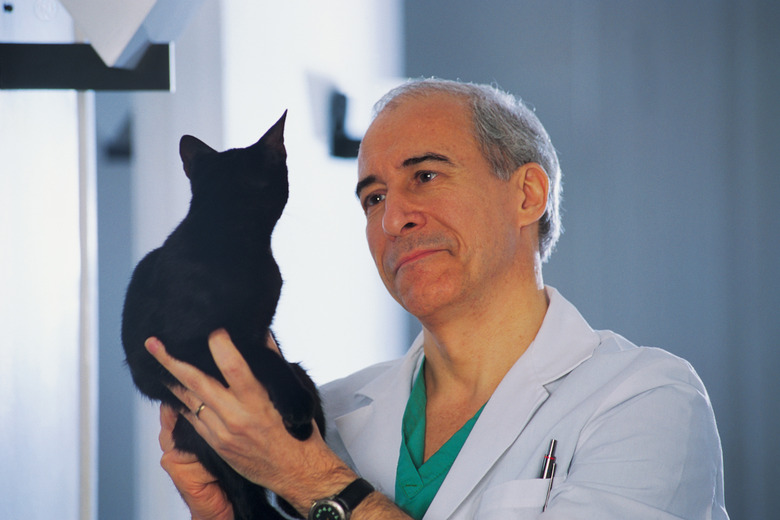What To Expect For Bleeding 48 Hours After A Feline Delivery
The process of giving birth to kittens is stressful both physically and mentally for cats. Most cats bleed from the vulva after giving birth, and cats bleed more and for longer periods of time if it is a first birth. After 48 hours from delivery, the bleeding gradually decreases, but a small amount of bleeding is still normal.
Bleeding After Birth
Bleeding After Birth
There are a number of reasons that cats bleed after giving birth. Like other mammals, a cat's uterus must contract back down to its normal size. The cat is frequently expelling excess tissue and afterbirth as well. Normal birth can cause small tears in the vulva, resulting in bleeding.
Bleeding Complications
Bleeding Complications
Abnormal, excessive bleeding can be a sign of several complications. The most risky of these is postpartum hemorrhage which occurs shortly after birth. 48 hours after a cat gives birth, hemorrhage is unlikely, but excessive bleeding can indicate an infection, uterine rupture or tearing, a retained placenta or a retained kitten.
Normal Bleeding
Normal Bleeding
Normal bleeding should be light spotting with occasional watery discharge that is green, yellow or clear. The bleeding may stop and then start again, but the quantity of blood and frequency of bleeding should gradually decrease over several days. A small amount of blood 48 hours after delivery is normal and bleeding may continue for several days thereafter. Cats who are nursing their kittens, eating, moving around and that are not lethargic are experiencing normal postpartum bleeding.
Abnormal Bleeding
Abnormal Bleeding
A cat that is bleeding large quantities of blood needs immediate veterinary care. If your cat is not nursing or eating, seems to be in pain or is lethargic, contact an emergency veterinary clinic. A foul odor along with bleeding frequently indicates an infection or retained kitten. If the bleeding continues for more than a week postpartum or if bleeding stops for a day and then starts again, there may be something wrong. When in doubt about whether or not bleeding is normal, consult a veterinarian.
Always check with your veterinarian before changing your pet's diet, medication, or physical activity routines. This information is not a substitute for a vet's opinion.
References
- "Dr. Pitcairn's New Complete Guide to Natural Health for Dogs and Cats"; Richard Pitcairn, et. al; 2005
- "The Complete Book of Cat Breeding"; Dan Rice; 1997
- "Cat Owner's Home Veterinary Handbook"; Debra M. Eldrege, et al.; 2007
